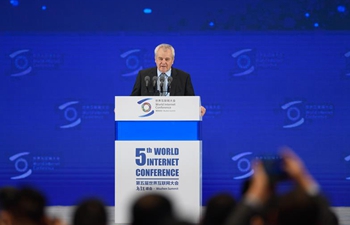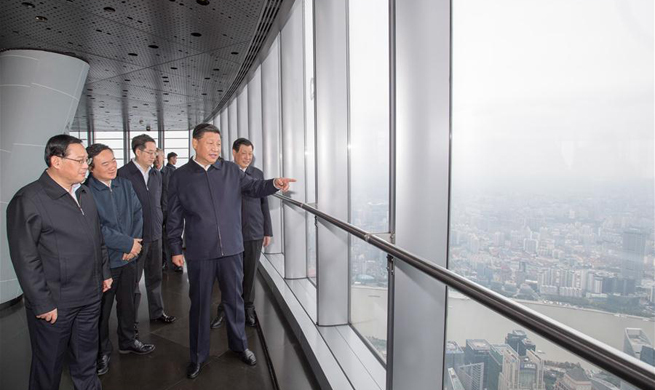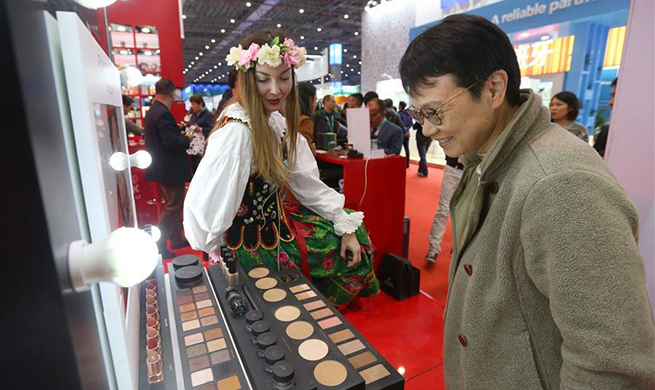by Dana Halawi
BEIRUT, Nov. 10 (Xinhua) -- The delay in the formation of a government in Lebanon has weighted heavily on consumers' confidence and the flow of investments, local economists told Xinhua.
"The fact that the government has entered its sixth month of deadlock creates uncertainty and insecurity," said Layal Mansour, a researcher at the American University of Beirut.
When people feel unsecure, they tend to restrict their consumption to important and basic goods, which means businesses won't have any incentives to produce or to invest, she said.
According to Mansour, investment is the core of the economy as it leads to growth and creates jobs while increasing income.
"However, investment needs trust, security and confidence. Huge foreign investments will not go to a country that has no government and that is not capable of approving the necessary laws for improving the business environment," she said.
Foreign direct investments (FDI) to Lebanon are expected to drop to 2.4 U.S. billion dollars from 2.56 billion dollars in 2017.
Nassib Ghobril, head of the economic research department at Byblos Bank, attributed the drop in FDI to the weak investment climate, inadequate business environment, high taxes, high operating costs in addition to the delay in government formation.
Ghobril reiterated Mansour's remarks by saying that consumers' confidence has been remarkably impacted by the delay in the formation of the cabinet.
Byblos Bank's Consumer Confidence Index jumped in May as a result of expectations from the parliamentary elections, said Ghobril, but the index has regressed and stagnated since June.
"People are putting on hold all their major individual consumption decisions which require financial commitment such as buying a car or a house," he said.
He added that businesses have also put on hold investment decisions, projects and expansions because of uncertainty.
Ghobril explained that the delay of cabinet formation is burdening the Lebanese economy with an opportunity cost.
"We are incurring an opportunity cost of not starting with the process of reforms to unlock the funds that were pledged at the CEDRE conference," he said.
Lebanon secured over 11 billion dollars in soft loans and grants from international donors at CEDRE to revamp its ailing infrastructure and bolster its economy.
CEDRE is an international conference in support of Lebanon development and reforms.
However, authorities must speed up the formation of the new government to start necessary reforms to obtain the help pledged at CEDRE.
"When the overall income of people decrease and producers shutdown their businesses, they won't be capable of paying back their loans," said Mansour.
She added the number of checks without provisions is actually at its peak and judges have taken unofficial measures not to stop all of unpaid checks holders.
Meanwhile, Ghobril said that some banks are being more flexible with people and companies who cannot pay back their loans for the time being.
"The banking sector is bearing public finance stability and economic stability that 89 percent of public debt is held by local institutions," he said, adding that economic growth and fiscal reforms are the responsibility of the executive branch and not the banking sector.
"Also, the stimulus packages offered by the central bank is supposed to be part of the responsibility of the executive branch," he added.
When asked about the positive impact of a government formation in the near future, Ghobril said that the new cabinet should be an efficient one in a bid to make a difference.
Mansour noted that restoring trust and confidence in the country after the formation of the government is not easy.
"People can easily lose confidence but it takes a lot of time to build this trust again," she said.

















